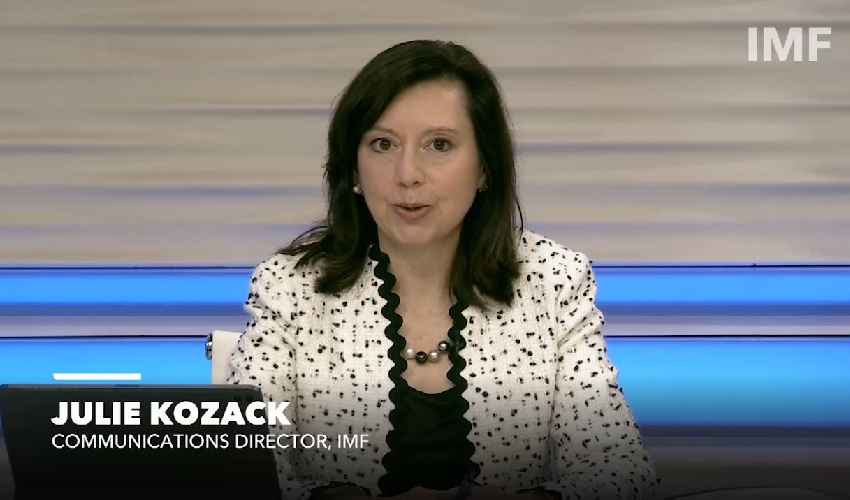International Monitoring Fund (IMF) Communication Director Julie Kozak praised China’s new initiative to revive the economy.
Answering a question in a monthly press briefing, Ms Julie Kozak responding to a question about IMF's assessment of the steps announced by the government this week to revive the economy to get growth back above 5 percent, she said that the IMF staff is in the process of assessing China’s initiatives of course and the policies that the government has put forward under the two sessions.
“We certainly very much welcome the authority's focus on high quality and sustainable growth, and we will continue to review additional information provided by the authorities on the direction of policies in the coming days. Igor, a couple of questions,” she said.
Must Read: Pakistan gears up for IMF mission arrival to finalise Stand-By Arrangement
Chinese Premier Li Qiang announced an ambitious 2024 economic growth target of around 5% on Tuesday, promising steps to transform the country's development model and defuse risks fuelled by bankrupt property developers and indebted cities.
Delivering his maiden work report at the annual meeting of the National People's Congress, China's rubber-stamp parliament, Li also flagged higher defence spending, while hardening the rhetoric on Taiwan.
In setting a growth target similar to last year, which will be harder to reach as a post-COVID recovery is losing steam, Beijing signals it is prioritising growth over any reforms even as Li pledged bold new policies, analysts said.
"It’s more difficult to achieve 5% this year than last year because the base number has become higher, indicating that the top leaders are committed to supporting economic growth," said Tao Chuan, chief macro analyst at Soochow Securities.
Last year's uneven growth laid bare China's deep structural imbalances, from weak household consumption to increasingly lower returns on investment, prompting calls for a new growth model.
China started the year with a stock market rout and deflation at levels unseen since the global financial crisis of 2008-09. The property crisis and local government debt woes persisted, increasing pressure on China's leaders to come up with new economic policies.
With awe at China's economic miracle fading rapidly, some economists have drawn comparisons with Japan's lost decades since the 1990s, calling for pro-market reforms and measures to boost consumer incomes.
"We should not lose sight of worst-case scenarios," Li said in the Great Hall of the People in Tiananmen Square.
"We must push ahead with transforming the growth model, making structural adjustments, improving quality, and enhancing performance."
There was no timeline or concrete details for the structural changes China intended to implement, however, with Li also emphasising stability as "the basis for everything we do".
Li acknowledged reaching the target "will not be easy," adding a "proactive" fiscal stance and "prudent" monetary policy was needed. The target considers "the need to boost employment and incomes and prevent and defuse risks," Li said.
The International Monetary Fund projects China's 2024 growth at 4.6%, declining towards 3.5% in 2028.
Chinese stocks (.CSI300), opens new tab and the yuan were largely unchanged.
"Policymakers seem happy with the current trajectory," said Ben Bennett, Asia-Pacific investment strategist at Legal And General Investment Management.
"That’s disappointing for those that hoped for a bigger push... There’s rhetorical support for local government debt and the property sector, but the key is how this is applied in practice."



























